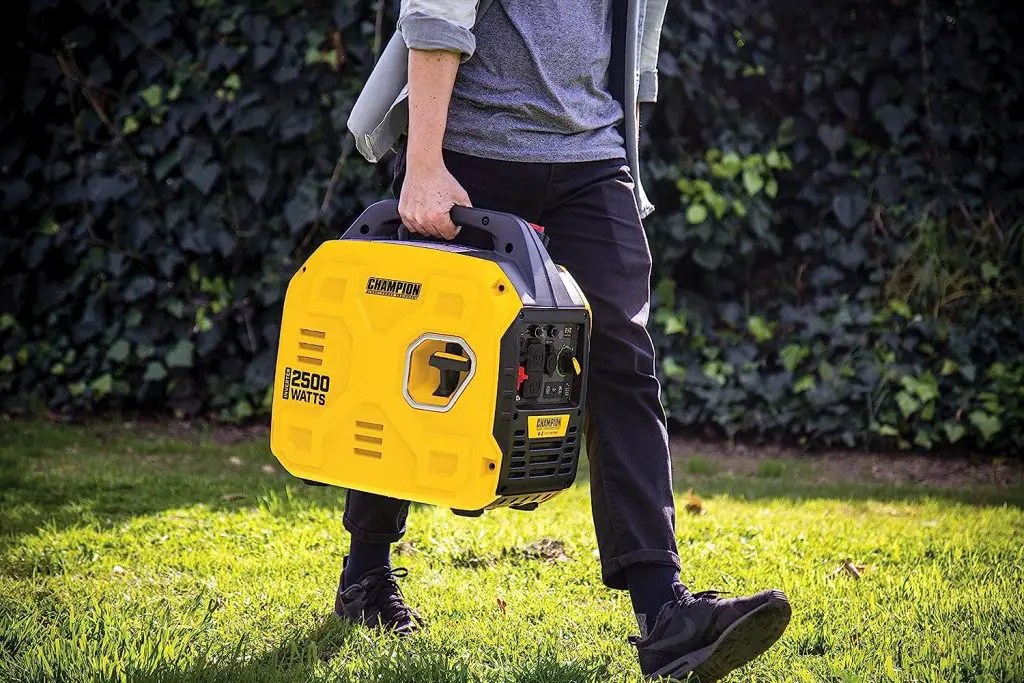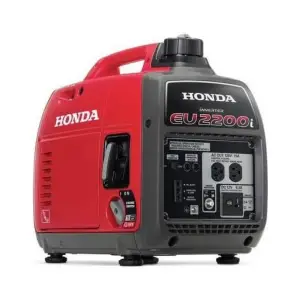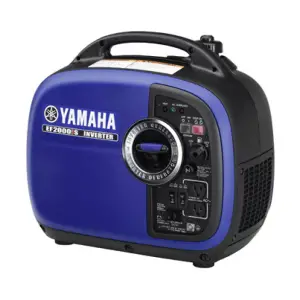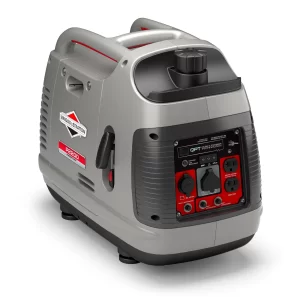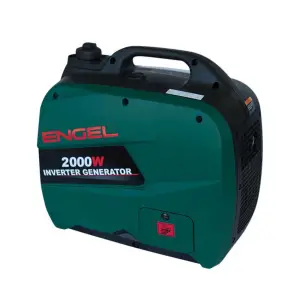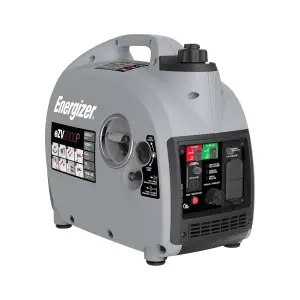What to look for: Camping Generator Buyers Guide
When it comes to embracing the great outdoors, few things are as essential as a reliable camping gazebo. Whether you’re seeking refuge from the scorching sun, finding shelter from unexpected rain showers, or creating a cozy communal space for friends and family, a well-chosen camping gazebo can transform your outdoor experience. From serene camping getaways to vibrant festivals, these versatile structures serve as the hub of comfort, protection, and relaxation. However, navigating the diverse array of options available can be daunting. That’s why we’ve crafted this comprehensive buyer’s guide, designed to walk you through every aspect of selecting the ideal camping gazebo for your adventures.
Throughout this guide, we will delve into the key factors that define a great camping gazebo, empowering you to make an informed and satisfying purchase decision. We’ll explore the considerations that matter most, from size and material to durability and ease of setup. Whether you’re a seasoned outdoor enthusiast seeking an upgrade or a first-time camper looking to enhance your comfort, our guide will provide valuable insights to help you choose the perfect gazebo that aligns with your preferences and needs.
As we embark on this journey of exploration, remember that the right camping gazebo is more than just a temporary shelter; it’s a cornerstone of your outdoor sanctuary. So, whether you’re envisioning tranquil mornings by the campfire, bustling gatherings with fellow adventurers, or simply a haven where you can unwind and connect with nature, our guide will equip you with the knowledge you need to select the camping gazebo that complements your outdoor lifestyle. Let’s dive in and discover the world of possibilities that camping gazebos have to offer.
Power Output and Capacity
Determine the total wattage of appliances and devices you plan to power. Choose a generator with sufficient capacity to handle your power needs. Consider both starting watts and running watts for appliances with high initial power spikes.
Fuel Type
Common options include gasoline, propane, diesel, and solar. Select a fuel type that suits your preferences, availability, and environmental concerns. Keep in mind the ease of obtaining and storing the chosen fuel during your trips.
Portability and Size
Opt for a generator that is lightweight and compact if you have limited space. Look for features like built-in handles and wheels for easy transport.
Noise Level
Check the generator’s decibel rating to ensure it complies with campground noise regulations. Inverter generators are known for their quieter operation compared to conventional models.
Run Time and Efficiency
Consider the generator’s run time on a single tank of fuel or charge. Look for features like an “Eco Mode” that adjusts power output to conserve fuel and reduce noise.
Generator Type
Inverter generators provide stable and clean power suitable for sensitive electronics. Conventional generators are more budget-friendly but may produce fluctuating power.
Ease of Use
Look for user-friendly controls and features like electric starts. Consider generators with indicator lights for oil levels, fuel levels, and power output.
Maintenance Requirements
Understand the maintenance tasks needed, such as oil changes and air filter cleaning. Choose a generator with accessible maintenance points for ease of upkeep.
Environmental Impact
Opt for models that are CARB (California Air Resources Board) compliant for reduced emissions. Solar generators offer a clean and renewable power source with minimal environmental impact.
Budget
Set a budget that aligns with your needs and preferences. Remember that higher-quality generators often come with better reliability and features.
Safety Features
Look for generators with overload protection and automatic shutoff features. Ensure the generator is well-ventilated to prevent carbon monoxide buildup.
Brand Reputation and Warranty
Choose a reputable manufacturer with a history of producing reliable products. Check the warranty period and coverage to ensure peace of mind.
Key Takeaways
By carefully considering these factors, you can find a camping generator that seamlessly integrates into your outdoor adventures, providing the power you need while preserving the tranquility of nature.
Whether you’re embarking on a remote camping trip or setting up a comfortable campsite, the right generator can make a world of difference in your overall experience.
FAQs
Frequently Asked Questions (FAQs) About camping generators
Q: What is a camping generator, and why do I need one?
A: A camping generator is a portable device that provides electrical power in outdoor settings. It’s essential for powering various appliances and devices, ensuring comfort, safety, and convenience during your camping adventures.
Q: What types of camping generators are available?
A: There are two main types: conventional generators and inverter generators. Conventional generators produce AC power but might not be as stable for sensitive electronics. Inverter generators provide cleaner and more stable power, suitable for laptops, phones, and other sensitive devices.
Q: How do I determine the power requirements for my camping generator?
A: Calculate the combined wattage of all appliances and devices you plan to power simultaneously. Add extra wattage for devices with high startup power requirements.
Q: What’s the difference between running watts and starting watts?
A: Running watts refer to the continuous power a device requires to operate, while starting watts are the initial surge of power needed when the device is turned on. It’s crucial to choose a generator that can handle both running and starting watts.
Q: Which fuel type should I choose for my camping generator?
A: The most common fuel types are gasoline, propane, diesel, and solar. Choose based on availability, convenience, and environmental concerns. Gasoline and propane are often more accessible, while solar is renewable and eco-friendly.
Q: How loud are camping generators?
A: Generator noise is measured in decibels (dB). Inverter generators are generally quieter than conventional generators due to their advanced technology and design. Some manufacturers provide noise ratings to help you choose a quieter option.
Q: Can I use a camping generator in a national park or campground?
A: Many campgrounds have noise restrictions and might have specific rules about generator usage. Inverter generators are often preferred in such settings due to their quieter operation.
Q: How long can a camping generator run on a single tank of fuel?
A: The run time depends on the generator’s fuel tank capacity and the load it’s powering. Look for models with an “Eco Mode” that adjusts power output to save fuel and extend run time.
Q: Are there any safety considerations when using a camping generator?
A: Yes, safety is crucial. Place the generator in a well-ventilated area to prevent carbon monoxide buildup. Use a carbon monoxide detector, avoid overloading the generator, and follow proper maintenance procedures to ensure safe operation.
Q: Can I connect my camping generator to my RV or camper?
A: Yes, many generators offer RV-ready features, including adapters for direct connections. However, make sure to choose a generator with the appropriate power capacity for your RV’s needs.
Q: Are solar generators a good option for camping?
A: Solar generators are a clean and renewable option, great for environmentally conscious campers. They harness sunlight to produce electricity, but their output might be lower than traditional generators, so consider your power requirements.
Q: What maintenance does a camping generator require?
A: Regular maintenance includes oil changes, air filter cleaning, and spark plug checks. Follow the manufacturer’s guidelines for maintenance intervals and procedures to ensure the generator’s longevity and performance.
Remember that selecting the right camping generator involves considering your power needs, noise preferences, fuel availability, and environmental impact. Always consult user manuals and reviews before making your final decision.

